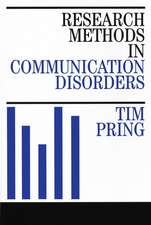Coping with Methuselah: The Impact of Molecular Biology on Medicine and Society
Editat de Henry Aaron, William B. Schwartzen Limba Engleză Paperback – 20 ian 2004
Many medical authorities predict that average life expectancy could well exceed 100 years by mid century and rise even higher soon thereafter. This astonishing prospect, brought on by the revolution in molecular biology and information technology, confronts policymakers and public health officials with a host of new questions. How will increased longevity affect local and global demographic trends, government taxation and spending, health care, the workplace, Social Security, Medicare, and Medicaid? What ethical and quality-of-life issues are raised by these new breakthroughs? In Coping with Methuselah, a group of practicing scientists and public policy experts come together to address the problems, challenges, and opportunities posed by a longer life span. This book will generate discussion in political, social, and medical circles and help prepare us for the extraordinary possibilities that the future may hold.
Preț: 219.94 lei
Preț vechi: 231.51 lei
-5% Nou
Puncte Express: 330
Preț estimativ în valută:
42.09€ • 43.42$ • 35.12£
42.09€ • 43.42$ • 35.12£
Carte tipărită la comandă
Livrare economică 27 martie-10 aprilie
Preluare comenzi: 021 569.72.76
Specificații
ISBN-13: 9780815700395
ISBN-10: 0815700393
Pagini: 296
Dimensiuni: 152 x 229 x 21 mm
Greutate: 0.41 kg
Editura: Brookings Institution Press
Colecția Brookings Institution Press
Locul publicării:United States
ISBN-10: 0815700393
Pagini: 296
Dimensiuni: 152 x 229 x 21 mm
Greutate: 0.41 kg
Editura: Brookings Institution Press
Colecția Brookings Institution Press
Locul publicării:United States
Notă biografică
Edited by Henry Aaron and William B. Schwartz
Descriere
Many medical authorities predict that average life expectancy could well exceed 100 years by mid century and rise even higher soon thereafter. This astonishing prospect, brought on by the revolution in molecular biology and information technology, confronts policymakers and public health officials with a host of new questions. How will increased longevity affect local and global demographic trends, government taxation and spending, health care, the workplace, Social Security, Medicare, and Medicaid? What ethical and quality-of-life issues are raised by these new breakthroughs? In Coping with Methuselah, a group of practicing scientists and public policy experts come together to address the problems, challenges, and opportunities posed by a longer life span. This book will generate discussion in political, social, and medical circles and help prepare us for the extraordinary possibilities that the future may hold.








